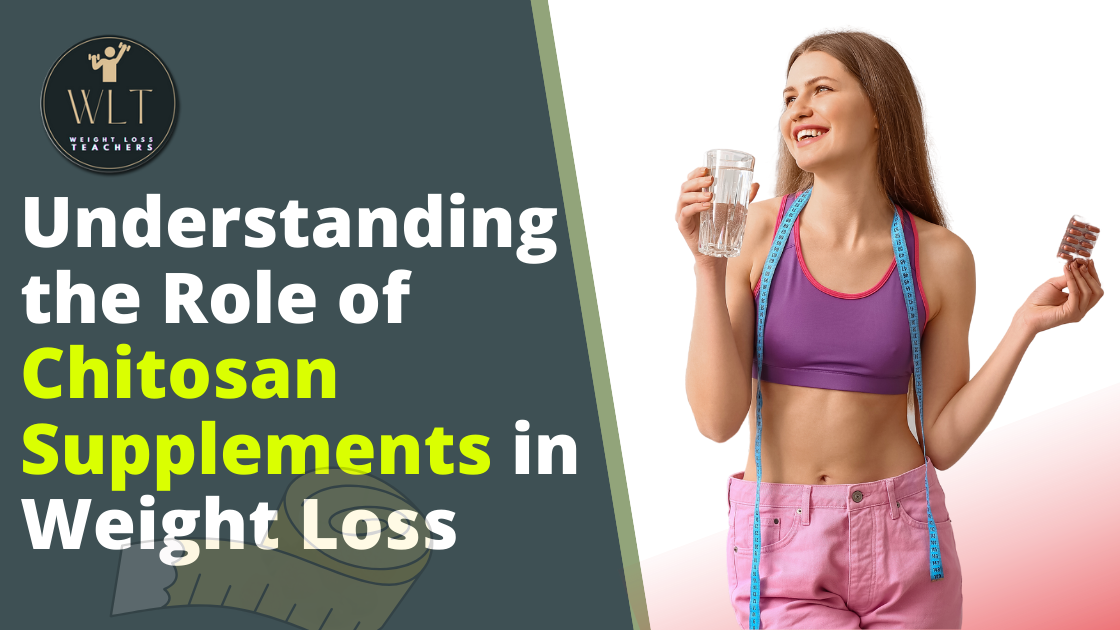
Understanding the Role of Chitosan Supplements in Weight Loss

Obesity is a global health crisis, and millions of people are trying to lose weight. While standard weight loss methods such as diet and exercise are important in attaining weight management goals, many people look for additional supplements to help them along the way. Chitosan supplements for weight loss have gained popularity in recent years.
Table of Contents
Introduction
Chitosan is a natural polymer formed from chitin, which is found in crustacean shells such as shrimp and crabs. This article dives into the role of chitosan in weight loss, its potential weight loss benefits, and its potential risks and limitations.

An Overview of Chitosan
Chitosan is a biopolymer made from chitin, a natural material found in crustacean shells. Deacetylating chitin removes the acetyl groups from chitin molecules, producing chitosan. The resultant chitosan is a white, odorless, and tasteless powder with a wide range of applications in agriculture, medicine, and food processing.
Chitosan is known for its distinct features, such as its ability to interact with lipids and other compounds. Because of its ability to absorb fats, it has been investigated as a potential dietary supplement for weight loss. Chitosan supplements for weight loss come in a variety of forms, including pills, capsules, and powders, making them conveniently accessible to customers.
How Does Chitosan Help With Weight Loss?
Chitosan’s potential impact on weight loss is mostly due to its unique fat-binding abilities, making it appealing to those looking to lose weight. This mechanism, also known as “fat trapping” or “fat blocking,” is critical to understanding how chitosan may help with weight loss.
Chitosan, a biopolymer produced from chitin, has a high affinity for dietary lipids, which are mostly triglycerides. Chitosan, when taken as a supplement, begins a complicated trip within the digestive system.
This is how it works:
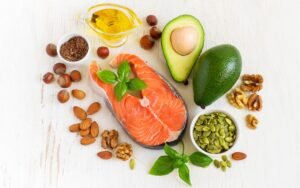
Interaction with Dietary Fats: As chitosan passes through the digestive tract, it comes into contact with the dietary fats in the food we eat. These fats are commonly found in cooking oils and butter, and they are naturally present in many foods.
Fat-Chitosan Complex Formation: Chitosan’s magic emerges as it interacts with these dietary fats. It is common for chitosan molecules to connect with lipids. This makes “fat-chitosan complexes,” which are molecules made up of chitosan and dietary fats.
Fat Absorption Blocking: The importance of these complexes resides in their magnitude. They are produced in such a way that they grow much larger than individual fat molecules. This modified molecular shape is too big for the body to adequately absorb.
Passage through the Digestive System: Fat-chitosan complexes cannot be absorbed through the walls of the small intestine because they are too big. The fat-binding characteristic of chitosan plays a significant role in its weight loss potential during this vital period.
Expulsion from the Body: Because the complexes cannot be assimilated, they pass through the digestive system before being expelled from the body via the usual waste removal process.
As a result of their interaction with chitosan, some dietary fats do not contribute to the body’s calorie intake. This decrease in calorie absorption is thought to be a crucial component in the weight loss mechanism linked to chitosan.
It is important to note that the role of chitosan in weight loss may not be the same for all individuals. There are a number of factors that affect this process, such as:
Dietary Fat Type and Amount: The effectiveness of chitosan is highly related to the type and amount of dietary fat consumed. High-fat meals are more likely to allow chitosan to interact with fats, potentially resulting in more obvious effects.
Individual Dietary Habits: An individual’s general dietary habits, including the regular consumption of high-fat foods, affect the frequency and degree of chitosan’s fat-binding activity. It is critical to understand that chitosan works best when combined with a diet that contains a considerable amount of dietary fat.
Clinical Research and Studies Regarding Chitosan and Weight Loss
The use of chitosan supplements for weight loss has attracted the curiosity of researchers and health enthusiasts alike. Several clinical studies on the impact of chitosan on weight control and body composition have been conducted.
Some of the major findings of these studies on chitosan and weight loss are:
- Impact on Body Weight
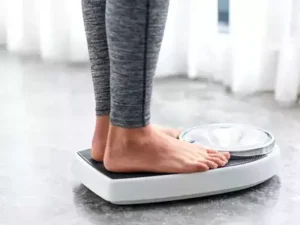
Many studies have found that chitosan supplements can help with slight weight loss. A meta-analysis of multiple clinical trials published in the journal “Obesity Reviews” in 2009 discovered that, when compared to a placebo, chitosan had a statistically significant effect on weight loss. The weight reduction averaged 3.7 pounds (1.7 kilograms) across the course of the trials in the studies included in the analysis.
While these findings are encouraging, the weight loss observed was small, and the long-term effects of chitosan on weight loss remain unknown.
- Reduced Body Fat

Chitosan has also been analyzed for its ability to reduce body fat. A 2001 study published in the “Journal of the American College of Nutrition” discovered that chitosan supplements reduced body fat percentages in overweight and obese people. When compared to individuals who received a placebo, those who took chitosan saw a considerable reduction in body fat.
However, it is important to note that the findings of different studies can differ, and not all research supports the assumption that chitosan is useful in reducing body fat.
- Controlling Cholesterol
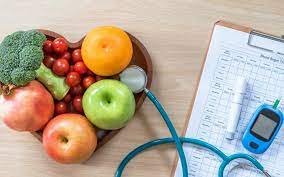
Chitosan has been examined for its ability to improve cholesterol levels in addition to weight loss. According to some studies, chitosan may help lower LDL cholesterol (often known as “bad” cholesterol) by attaching to dietary cholesterol and inhibiting its absorption. Because high LDL cholesterol levels are connected with an increased risk of heart disease, this effect may have ramifications for cardiovascular health.
A 2017 study published in the “European Journal of Clinical Nutrition” discovered that chitosan supplements reduced LDL cholesterol levels significantly. However, more research on chitosan and weight loss is required to completely comprehend the magnitude and consistency of these supplements.
Benefits of Chitosan Supplements in Weight Loss
Chitosan supplements for weight loss have attracted the curiosity of both researchers and individuals seeking effective weight control solutions. While the scientific evidence supporting chitosan’s effect on weight loss is inconclusive, various possible benefits have been identified, making it a worthwhile option for people on a weight loss quest.
- Absorption of Fat

The capacity of chitosan to interact with dietary lipids is one of its primary benefits. Chitosan’s molecular structure allows it to establish connections with fats in the digestive system, such as triglycerides. Chitosan functions as a “fat trap” when consumed with a meal, binding to dietary fats and limiting their absorption in the small intestine.
Chitosan’s fat-binding ability is especially advantageous for people who eat a high-fat diet. People who follow fat-rich diets frequently struggle to limit their calorie intake since fats are calorie-dense foods. Chitosan can help produce a calorie deficit by limiting fat absorption, which is a fundamental premise for weight loss.
In reality, this suggests that chitosan “traps” and expels through the digestive process the calories from fat that the body would typically absorb. This lower calorie absorption can contribute to gradual weight loss over time.
- Caloric Intake Reduction

Weight loss is essentially based on the principle of calorie balance, which states that when you consume fewer calories than your body expends, you are more likely to lose weight. In this approach, chitosan can be a useful tool. Chitosan reduces calorie consumption by lowering dietary fat absorption without needing consumers to dramatically adjust their diets.
This chitosan characteristic is especially beneficial for those looking to build a calorie deficit. Chitosan can provide an extra technique for managing caloric intake for people who have difficulties reducing their portion sizes or adopting a low-fat diet.
It’s crucial to note that, while chitosan can help you lose weight, it works best when combined with a healthy diet and frequent physical activity. Weight loss is still a challenging process that depends on a number of variables, including meal quality, physical activity, and individual metabolism.
- Controlling Cholesterol
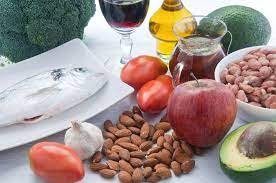
Chitosan’s effect on weight loss goes beyond calorie restriction. It has also been studied for its ability to enhance cholesterol levels, particularly when it comes to regulating low-density lipoprotein (LDL) cholesterol, also known as “bad” cholesterol.
High levels of LDL cholesterol are linked to an increased risk of cardiovascular illness, including heart disease and stroke. Chitosan binds to dietary fats in the digestive system, reducing not only calorie absorption but also cholesterol absorption. This has significance for heart health because reducing LDL cholesterol levels can improve overall cardiovascular health.
Chitosan’s ability to help with cholesterol management provides another layer of possible benefits for those thinking about using it. Improving cholesterol levels not only benefits heart health but also indirectly aids weight loss. Chitosan is an appealing alternative for those who wish to address both their weight and their cardiovascular health.
Note: There might be affiliate links mentioned here. We may receive a commission if you purchase a product through an affiliate link. There is no additional charge for you. Please do your own research before making any online purchases.
- Minimal Adverse Effects

Chitosan is widely regarded as a safe and tolerable supplement with minimal documented negative effects. This makes it an interesting alternative for people looking for weight loss pills. Unlike some weight loss products, which may have a variety of side effects, chitosan is generally well-tolerated by those who use it.
Weight loss supplement side effects can include jitteriness, rapid heartbeat, digestive discomfort, and even more serious health concerns. On the other hand, chitosan is generally soft on the body and digestive system, lowering the chance of negative side effects.
This safety quotient adds to the appeal of chitosan for weight loss because it allows people to experiment with different weight loss methods without worrying about encountering negative side effects. However, while side effects are minor, individual responses to supplements can vary, so speaking with a healthcare practitioner before beginning any supplement regimen is always recommended.
Considerations and Limitations Related to Chitosan and Weight Loss
Before taking chitosan supplements for weight loss, it’s necessary to be aware of the following limits and considerations:
- Variability in Outcomes
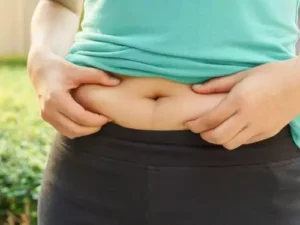
Chitosan’s effectiveness varies from person to person. Diet, overall calorie intake, and the kind of fat consumed can all have an impact on its fat-binding capacity. As a result, chitosan may not have consistent outcomes for everyone.
- Minor Weight Loss
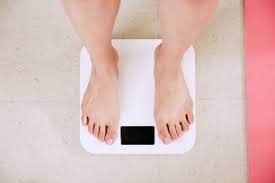
Chitosan has a minor effect on weight loss. While it can help with progressive weight loss, it is not a miracle cure for speedy or significant weight loss.
- Eating Habits

The efficacy of chitosan is highly related to an individual’s eating patterns. A healthy diet with appropriate portion sizes and regular exercise are still essential components of a successful weight loss regimen. Chitosan should be regarded as a supplement rather than a stand-alone solution.
- Not a Cure for All
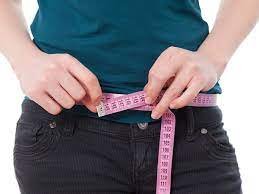
It is critical to recognize that chitosan is not a magic solution for obesity or other weight-related health conditions. Weight loss is a complicated process driven by a variety of factors, such as genetics, lifestyle, and overall health. Chitosan should be viewed as only one component of the puzzle.
- Possible Side Effects
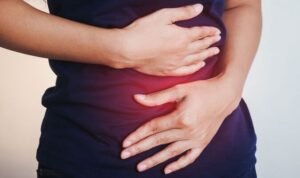
While chitosan supplements for weight loss are usually safe, some people may develop moderate gastrointestinal side effects such as bloating, gas, or diarrhea. Before beginning any supplement program, it is best to contact a healthcare practitioner, especially if you have any previous medical concerns.
Precautions and Recommendations for Chitosan for Weight Loss
If you want to try chitosan pills for weight loss, you should proceed with prudence and make informed judgments. Here are some suggestions and warnings regarding chitosan and weight loss:
- Seek the Advice of a Healthcare Professional

Consult a healthcare expert, such as a certified nutritionist or physician, before beginning any new supplement regimen, including chitosan. They can give you personalized advice depending on your health and weight loss objectives.
- Use Chitosan as a Supplement

Chitosan should be used in conjunction with a healthy diet and regular exercise, not as a replacement for them. Adopting a healthy lifestyle that involves mindful eating and physical activity is the priority.
- Carefully Read Labels

When shopping for chitosan supplements, make sure to check the product labels to verify you’re getting a trustworthy brand with adequate dosages and component purity.
- Keep an Eye Out For Side Effects

When using chitosan, keep an eye out for any negative reactions or side effects. If you develop pain or gastrointestinal concerns, stop using the product and consult a doctor.
- Keep Expectations in Check

Manage your expectations about chitosan’s possible weight loss advantages. Keep in mind that this is not a miracle cure, and the benefits may be minor.
FAQs
What exactly is chitosan, and what does it have to do with weight loss?
Chitosan is a natural polymer formed from the material chitin, which is found in crab shells. It is thought to help with weight loss because of its fat-binding characteristics, which restrict the absorption of dietary fats and calories, contributing to weight management.
How does chitosan function in the body?
In the digestive tract, chitosan reacts with dietary lipids, generating fat-chitosan complexes that are too big for the body to absorb. These compounds are eliminated after passing through the digestive system, lowering the effective calorie intake.
Is chitosan considered a “fat trap” or a “fat blocker”?
Chitosan is known as a “fat trap” as well as a “fat blocker” because it captures dietary fats by creating complexes that are too big for absorption, effectively inhibiting their uptake by the body.
Chitosan interacts with what kinds of dietary fats?
Chitosan interacts with a variety of dietary lipids, including those derived from cooking oils, butter, and fats found naturally in meals.
How does chitosan help with weight loss without changing one’s diet?
Chitosan inhibits dietary fat absorption, resulting in a calorie deficit without necessitating large dietary adjustments. It can assist people who are having difficulty reducing their portion sizes or adopting low-fat diets.
Is chitosan’s weight loss impact consistent across all individuals?
No, the efficiency of chitosan varies by individual and is dependent on factors such as the type and amount of dietary fat consumed, as well as general dietary patterns.
Can chitosan aid in cholesterol reduction?
Chitosan has been examined for its ability to reduce LDL cholesterol levels, generally known as “bad” cholesterol, by limiting dietary cholesterol absorption.
Are there any negative effects of chitosan supplementation?
Chitosan is generally well-tolerated, with minimal adverse effects documented. Some people, however, may develop minor gastrointestinal difficulties such as bloating, gas, or diarrhea.
Is chitosan a magical treatment for obesity or a quick way to lose weight?
Chitosan is not a miraculous treatment. It should be seen as a supplement to a comprehensive weight-loss regimen that includes a healthy diet and frequent exercise.
What precautions should I take before taking chitosan weight loss supplements?
Consult a healthcare practitioner before beginning chitosan supplements, use them as a supplement to a healthy diet and exercise, carefully read product labels, monitor for side effects, and keep realistic expectations about weight reduction results.
Conclusion
Because of their potential to bind with dietary fats and limit fat absorption, chitosan supplements have attracted interest for their possible role in weight management. While there is evidence that chitosan can help with minor weight loss and cholesterol levels, it is not a perfect cure for obesity or severe weight gain.
Individuals thinking about taking chitosan supplements should proceed with caution, as their efficiency varies from person to person. Chitosan should be seen as a supplement to a healthy lifestyle that includes a well-balanced diet and regular exercise.
Before introducing chitosan into your weight loss plan, like with any dietary supplement, consult with a healthcare practitioner to ensure that it corresponds with your overall health and fitness goals. Finally, successful weight management is a multifaceted activity, and while chitosan may play a part, it is not a stand-alone answer to the complicated issue of obesity and weight loss.
Disclaimer: The information provided in this article is for educational purposes only and should not be considered as a substitute for medical advice. Consult a healthcare professional before implementing any home remedies or making significant changes to your lifestyle.






